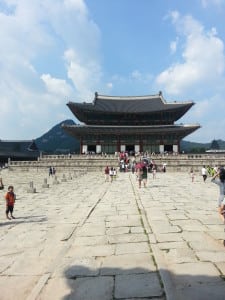 Arbitration- A Great Dispute Resolution Tool in Korea
Arbitration- A Great Dispute Resolution Tool in Korea
Korea, like other countries has acknolwedged the concerns its companies have over international litigation. And Korea, like other countries has jumped on the arbitration bandwagon. Arbitration is a contractual mechanism that parties use to avoid litigation. As it is a contractual mechanism, the parties are free to determine the procedural requirements, number of arbitrators, governing law, and other key provisions, etc.In other words, arbitration is a procedure that the parties select instead of availing themselves of a judicial system of a particular country, state, or province.
The primary characteristics of arbitration are:
The parties select the arbitrator(s)
It is a consensual process.
It is a private process.
It is a neutral process.
It issues a final decision, with normally no appeal rights.
It is very cost effective.
The main reasons that make arbitration a very attractive process over litigation in most jurisdictions are primarily: (1) it is a neutral process, (2) arbitral decisions are easily enforceable, (3) it offers flexibility (the ability to control and minimize electronic discovery and costs), and (4) the arbitrations are sophisticated. Among the reasons are:
Flexibility: One of the most fascinating qualities of arbitration, both domestic and international, is its inherent flexibility. That quality principally arises from two sources: the fact that the contract of the parties creates the jurisdiction of the arbitrator, and the necessity to adapt to the procedural requirements of the claimants and respondents.
Sophistication of arbitrators/process: Although arbitrators usually have legal training, they come from many different backgrounds—law professors, practicing lawyers, judges, government officials, etc. This fact creates an opportunity for the development of a sophistication that flows from the combing of many different experiences and points of view.
Enforceability: It is a truism that an award issued by an arbitral tribunal and a judgment rendered by a court are worth very little unless it can be enforced. Happily, arbitral awards are easily enforced. Sometimes, in certain circumstances, they are more easily enforced than court-rendered judgments.
Arbitration has long been viewed favorably as a dispute resolution mechanism for international disputes. This especially holds true for disputes in Asia including Korea. In the past decade, arbitration in Asia has greatly increased which is an outcome or direct result of the rapid increase in trade.
Like companies in Hong Kong or Singapore, Korean companies have increasingly embraced the idea of arbitration as the most preferred method of international dispute resolution. Indeed, Korean arbitration has become a very popular form of dispute resolution and can be viewed as an excellent risk management tool. However, as noted by some arbitration specialists, the arbitration business in Korea is still lagging behind more advanced countries in some respects. As such Korea is taking steps to increase the popularity of arbitration in Korea and turn Seoul into a world class seat of arbitration.
Like other Asian arbitration centers such as Singapore and Hong Kong, Korea has a well established arbitration law, going back to 1966, when it first enacted the Korean Arbitration Act. Like Singapore and Hong Kong, Korea has also one officially recognized arbitral institution - the Korean Commercial Arbitration Board (“KCAB”) which was officially established in 1970 under the name of the Korean Commercial Arbitration Center. In fact, Korea has enacted a wide range of mediation procedures within governmental agencies or entities besides the KCAB due to the popularity of arbitration and mediation in Korea.
In the last few years, because of its explosive growth Korea has promoted itself as a center of international arbitration and has started to see its popularity as a center for international arbitration, increase. Although the KCAB has in fact been active since 1970, it has only been in the last few years that it has seen a large increase in filings. It has been pointed out that in the first quarter of 2009; there was a forty percent increase in cases filed with the KCAB compared to the first quarter of 2008.
Taking its lead from SIAC and HKIAC, the KCAB proposed sweeping changes to its rules, which were adopted in 2011 and has also supplemented them in 2016. The new rules, not only brought it in line with HKIAC and SIAC, but made it more attractive to foreign parties and enhanced its reputation as an arbitration center. The more important aspects of the Korean Arbitration Act as well as the major KCAB rules that were amended in 2011 and also 2016 became in line with international norms and have effectively placed Korea in the same category as other world class arbitration centers.
Korea and Korean companies have warmly embraced the benefits of international arbitration . Not only are Korean companies using arbitration as an effective means of resolving disputes but Korea itself is starting to enjoy the benefits of becoming a world class arbitration hub.